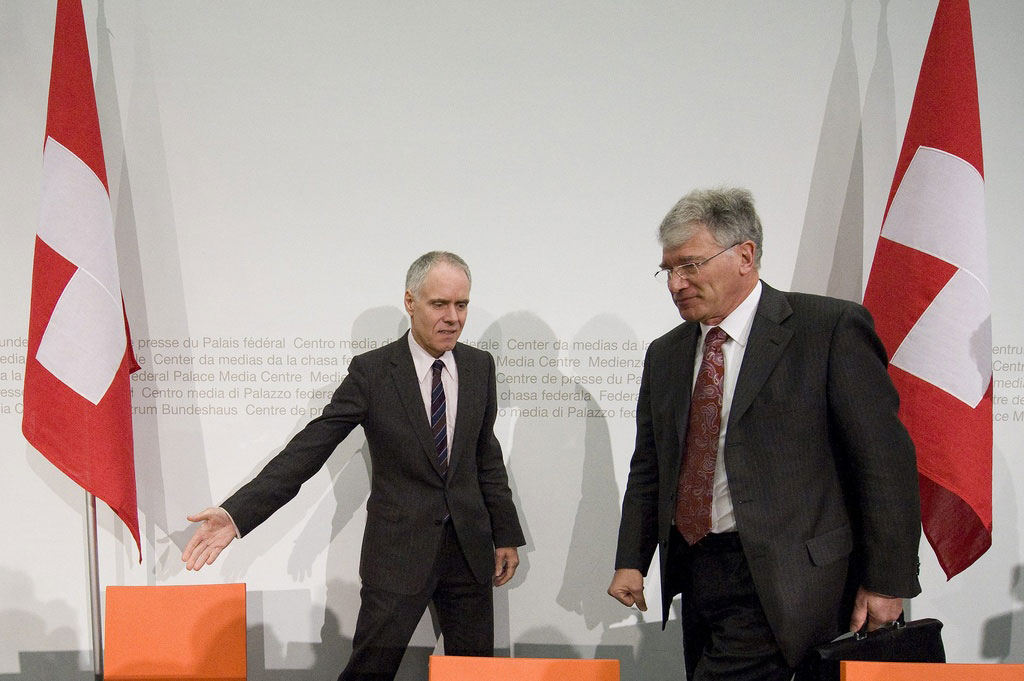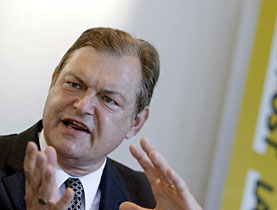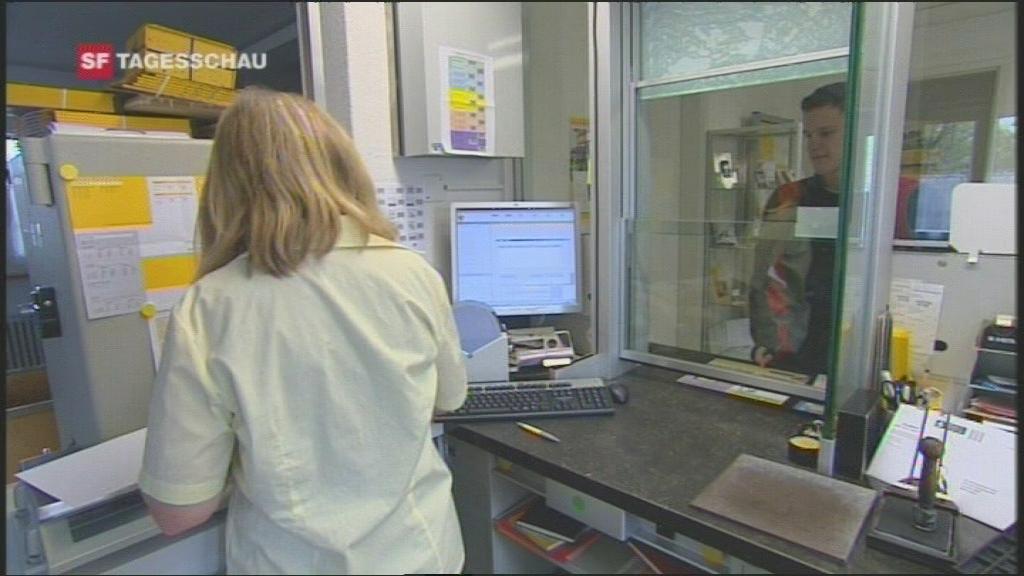New Post chairman named to reassure public

The government has appointed a new Swiss Post chairman in an effort to put an end to a power struggle at the helm of the state-owned company.
Peter Hasler, a former head of the Swiss Employers’ Association, has taken over with immediate effect just a day after his controversial predecessor, Claude Béglé, handed in his resignation.
“It is an important and necessary step to allow Swiss Post to steer into calm waters,” Communications Minister Moritz Leuenberger said on Wednesday.
He said the 63-year-old Hasler had the necessary experience in the public service sector and could restore calm to the organisation which has been through turbulent weeks.
The main political parties, as well as the trade unions generally welcomed Hasler’s appointment, but they expressed surprise at the pace of the nomination.
While the centre-left stressed the need to strengthen the position of Swiss Post as a reliable provider of a public service, the rightwing People’s Party launched an attack against Leuenberger, saying it showed a lack of leadership.
Mathias Finger, postal expert at Lausanne’s Federal Institute of Technology, described Hasler as a credible choice. He told the Swiss News Agency that a trustworthy leader was needed as divisive personalities had a hard time at Swiss Post.
Hasler, for his part, told journalists his top priority was to reassure the Swiss population and employees about the future of the organisation.
“Swiss Post is a solid enterprise. It has the support of the population and also enjoys a good reputation abroad,” he said.
Untenable
Leuenberger had appointed a working group to assess the situation at the Post, following the sacking of the chief executive, Michel Kunz, in December, and subsequent resignations of two board members over differences with Béglé.
The working group last Friday concluded that Béglé no longer had the necessary support of the board and the company management.
Leuenberger said he stood behind Béglé, but that he had to consider other options when the power struggle escalated.
He also acknowledged that he took full political responsibility for the nomination of Béglé 18 months ago.
“He was the right choice at the time to give a breath of fresh air. But it was impossible to know how the situation would develop.” He added that there were external and internal factors which led to the crisis.
Mistakes
Béglé, who had previously worked in France and Germany, triggered controversial debates over his business strategy, notably on an international level, his style of leadership and mandates with other companies.
“It was always my intention to serve Swiss Post to the best of my abilities,” he said, adding that since his nomination, and even before he took up office, there had been a united front against him.
“The old guard fought against new ideas and fresh blood. There was also deep-rooted opposition to a culture change,” he said.
Béglé would not be drawn on allegations that, as a French speaker, he was a victim of the German-speaking majority.
However, he accused former board members of orchestrating a campaign against him.
He acknowledged a number of “mistakes in communicating” and what he described as misunderstandings. Béglé said he had occasionally also acted too hastily.
Media campain
The long-running Béglé saga has received exhaustive coverage in the Swiss media and his resignation, was front page news on Wednesday. The coverage exposes political and linguistic divides.
The Tribune de Genève newspaper depicts Béglé’s fall as a media lynching, which “leaves a bitter taste”, blaming a concerted campaign by German-speaking Sunday newspapers to oust the French-speaking chairman.
However, the Zurich-based Tages-Anzeiger and Der Bund from Bern come to the conclusion that Béglé was the wrong man in the wrong place.
“He did not manage to give the impression internally or externally that he had the right answers. With his brusque manner he was never suited to the culture of the Post.”
The prestigious Neue Zürcher Zeitung newspaper points out that the challenges for the Post remain, despite Béglé’s resignation.
“As far as the future strategy is concerned there is no other way ahead than to reform the Post in light of market liberalisation and technological change.”
Swiss Post has about 60,000 employees, including 8,000 abroad, and is the country’s second-largest employer.
In 2008, it generated a profit of SFr825 million ($789 million) from revenues of nearly SFr9 billion in 2008, according to official figures.
It is active in 20 countries outside Switzerland.
Swiss Post is planning on a reducing its nationwide postal network as parliament is debating further steps towards market liberalisation.
The state-owned organisation lost its monopoly on parcel deliveries and is set to face competition for the delivery of letters.
June 2008: Claude Béglé is named incumbent chairman of Swiss Post by the government.
April 2009: Béglé takes office.
December 2009: Chief executive Michel Kunz resigns, followed by board member Rolf Hug.
January 6, 2010: Another board member, Wolfgang Werlé, resigns. All three blame differences with Béglé.
January 19: Claude Béglé resigns with immediate effect.
January 20: Government appoints Peter Hasler as successor to Béglé.

In compliance with the JTI standards
More: SWI swissinfo.ch certified by the Journalism Trust Initiative








You can find an overview of ongoing debates with our journalists here. Please join us!
If you want to start a conversation about a topic raised in this article or want to report factual errors, email us at english@swissinfo.ch.